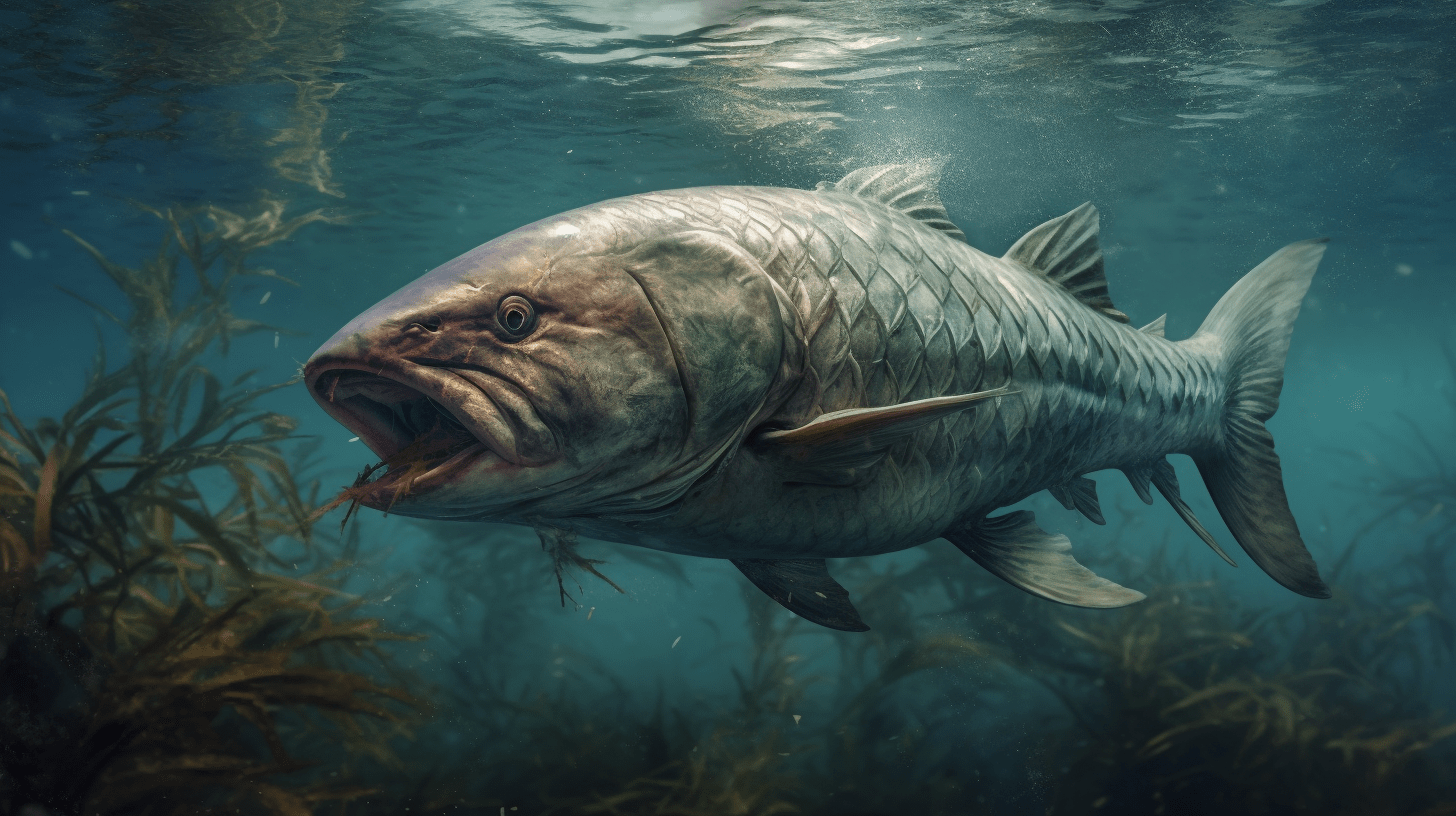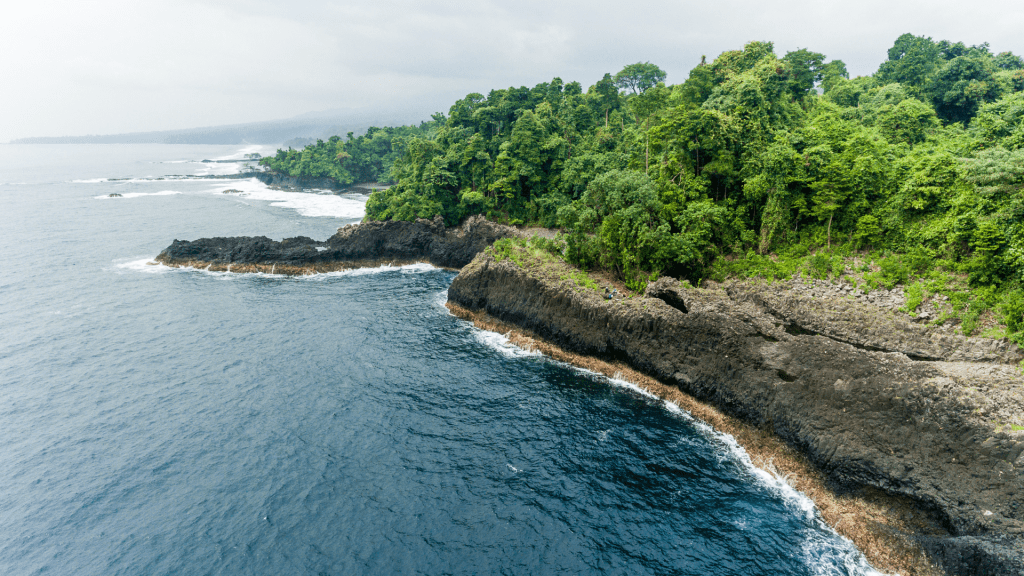Imagine yourself standing on the abundant coastlines of Equatorial Guinea, surrounded by diverse marine life. The thrill of hooking a tarpon is an experience like no other, testing your skills as an angler to the limit.
As you cast your line into the crystal-clear waters, you are captivated by the breathtaking beauty of the surrounding scenery.
With our gear and equipment recommendations, along with expert tips and techniques, you’ll be well-prepared to conquer this ultimate challenge in tarpon fishing.
Get ready for unforgettable adventures in the heart of Africa!
- Key Takeaways
- Equatorial Guinea's Abundant Coastlines and Diverse Marine Life
- The Thrill of Hooking a Tarpon
- The Ultimate Challenge for Anglers
- Breathtaking Beauty of the Surrounding Scenery
- Gear and Equipment Recommendations for Tarpon Fishing
- Best Fishing Spots in Equatorial Guinea
- Tips and Techniques for Catching Tarpon
- Local Fishing Regulations and Permits
- Accommodation and Travel Tips for Anglers
- Unforgettable Adventures in the Heart of Africa
-
Frequently Asked Questions
- How much does a fishing permit cost in Equatorial Guinea?
- What is the best time of year to go tarpon fishing in Equatorial Guinea?
- Are there any restrictions on the size of tarpon that can be caught?
- What are some recommended accommodations for anglers in Equatorial Guinea?
- What kind of travel tips should anglers keep in mind when planning a trip to Equatorial Guinea for tarpon fishing?
- Conclusion
Key Takeaways
- Abundant coastlines offer tarpon fishing opportunities
- Unique fishing traditions attract anglers
- Diverse marine ecosystems are a key attraction
- Balancing sustainable tourism and habitat preservation
Equatorial Guinea’s Abundant Coastlines and Diverse Marine Life
Equatorial Guinea’s coastlines offer a wealth of opportunities for tarpon fishing enthusiasts. Its unique fishing traditions and diverse marine ecosystems have made Equatorial Guinea a sought-after destination for anglers. However, we cannot overlook the impact of tourism on Equatorial Guinea’s marine ecosystems. Striking a balance between promoting sustainable tourism and preserving the delicate equilibrium of these habitats is crucial.
Now, let’s delve into the thrill of hooking a tarpon and explore the techniques that make it an exhilarating experience.
The Thrill of Hooking a Tarpon
In the midst of battling a tarpon, you can feel the adrenaline rush through your veins. Tarpon fishing techniques vary depending on the season and location.
During the tarpon fishing season in Equatorial Guinea, anglers employ various methods such as live baiting, fly fishing, and trolling to entice these powerful fish. Understanding their feeding patterns and migration routes is crucial for a successful catch.
However, hooking a tarpon is just the beginning of what lies ahead—the ultimate challenge for anglers awaits.
The Ultimate Challenge for Anglers
Once you’ve hooked a tarpon, the ultimate challenge for anglers is reeling it in and successfully landing the powerful fish. Tarpon fishing requires mastery of the art of fly fishing, as these elusive creatures demand finesse and skill to be effectively caught.
However, it is also important to remember the importance of conservation in this pursuit. By practicing catch-and-release techniques and respecting size limits, we can ensure the sustainability of this incredible species.
Now let’s turn our attention to the breathtaking beauty of the surrounding scenery.
Breathtaking Beauty of the Surrounding Scenery
So. What is it like in EQUATORIAL GUINEA? see the video
As you take in the stunning views of the surrounding scenery, you can’t help but feel a sense of awe and wonder. Equatorial Guinea is home to some of the most breathtaking scenic wonders on Earth.
Its diverse landscapes, from lush rainforests to pristine coastlines, offer endless opportunities for nature exploration. The dense vegetation teems with life, while crystal-clear waters harbor a myriad of marine species.
Now that you’ve marveled at this natural beauty, let’s delve into gear and equipment recommendations for tarpon fishing.
Gear and Equipment Recommendations for Tarpon Fishing
Before you head out on your tarpon fishing adventure, it’s important to have the right gear and equipment. When it comes to tarpon fishing techniques, having the correct tools is crucial for a successful catch.
You’ll need a sturdy rod, preferably 7-8 feet long, with a high-quality spinning reel. Strong monofilament or braided line is recommended to handle the power of these fish. Don’t forget essential items like hooks, leaders, and bait that mimic their favored prey.
Now that you’re equipped with knowledge about gear and equipment, let’s explore the best fishing spots in Equatorial Guinea.
Best Fishing Spots in Equatorial Guinea
To find the best fishing spots in Equatorial Guinea, you’ll want to ask local fishermen for their expert recommendations. Equatorial Guinea offers a diverse range of fishing opportunities. For tarpon enthusiasts, there are specific areas that yield the greatest results. These hotspots include the estuaries and river mouths along the coast, where tarpon often gather during their migration.
Understanding the best fishing techniques and knowing when tarpon fishing season is at its peak will greatly increase your chances of success. Now let’s delve into some tips and techniques for catching tarpon.
Tips and Techniques for Catching Tarpon
If you want to increase your chances of catching tarpon, it’s essential to understand the best techniques and timing for the task. Here are some tarpon fishing tips and techniques that can help improve your success rate:
- Use live bait such as mullet or crabs, as they are highly attractive to tarpon.
- Fish in areas with structure, like bridges or reefs, where tarpon like to hide.
- Time your fishing trips during tide changes when tarpon are more active.
- Employ a vertical jigging technique to entice a strike from these powerful fish.
By utilizing these tarpon fishing techniques and tips, you’ll be well on your way to landing one of these prized gamefish.
Now let’s delve into the local fishing regulations and permits required for this exciting adventure.
Local Fishing Regulations and Permits
Understanding the local fishing regulations and obtaining the necessary permits is crucial for a successful and legal fishing trip. When planning your tarpon fishing adventure in Equatorial Guinea, it is important to familiarize yourself with the local fishing regulations that govern this activity.
These regulations are in place to ensure sustainable and responsible fishing practices. Additionally, you will need to obtain the required fishing permits from the appropriate authorities before embarking on your angling journey.
Now that you are aware of the importance of adhering to local fishing regulations and acquiring the necessary permits, let’s explore some accommodation and travel tips for anglers.
Accommodation and Travel Tips for Anglers
When planning your angling journey, it’s important to consider accommodation and travel tips that can enhance your overall fishing experience.
Equatorial Guinea offers various accommodation options for anglers, ranging from luxury resorts to budget-friendly lodges near prime fishing spots.
Transportation options include domestic flights or boat charters to reach remote fishing locations.
Unforgettable Adventures in the Heart of Africa
When you’re not busy casting your line in search of the mighty tarpon, take some time to explore the rich biodiversity and cultural experiences that Equatorial Guinea has to offer.
Venture into the African rainforests, where you can embark on unforgettable adventures. Immerse yourself in the sights and sounds of nature as you encounter rare species of plants and animals.
Engage with local communities and delve into their customs, traditions, and way of life for a truly authentic experience.
Frequently Asked Questions
How much does a fishing permit cost in Equatorial Guinea?
The cost of a fishing permit in Equatorial Guinea varies depending on the type of fishing and duration. Fishing regulations are in place to ensure sustainable practices and protect the aquatic ecosystem.
What is the best time of year to go tarpon fishing in Equatorial Guinea?
The best time of year to go tarpon fishing in Equatorial Guinea is during the dry season, from December to April. The best fishing spots include the coastal areas and estuaries. Here are some tips for catching tarpon: use live bait, cast near structures, and be patient.
Are there any restrictions on the size of tarpon that can be caught?
There are size restrictions and tarpon regulations in place to ensure sustainable fishing practices. These regulations dictate the minimum and maximum sizes of tarpon that can be caught, helping to protect the population and maintain a healthy ecosystem.
What are some recommended accommodations for anglers in Equatorial Guinea?
For anglers in Equatorial Guinea, recommended accommodations include the Hotel Sofitel Malabo Sipopo Le Golf and the Hilton Malabo. The fishing permit cost is $100 per day for non-residents.
What kind of travel tips should anglers keep in mind when planning a trip to Equatorial Guinea for tarpon fishing?
When planning a trip to Equatorial Guinea, anglers should prioritize travel safety by checking for any travel advisories or warnings. Familiarize yourself with local fishing regulations and guidelines to ensure compliance during your tarpon fishing expedition.
Conclusion
In conclusion, tarpon fishing in Equatorial Guinea offers anglers an unparalleled adventure in the heart of Africa. With its abundant coastlines and diverse marine life, you will be captivated by the thrill of hooking a tarpon.
This ultimate challenge will test your skills and provide breathtaking beauty as you immerse yourself in the surrounding scenery. Remember to come prepared with the right gear and equipment, follow local fishing regulations, and make sure to take advantage of accommodation and travel tips for an unforgettable experience.
So grab your rod and reel, dive into this unique opportunity, and let the journey begin!

